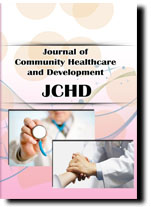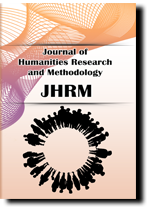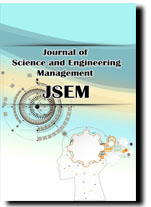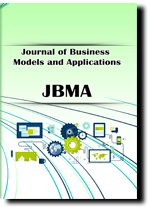[1] Bae, S. Y. and Cho, Y. C., “Analysis of the influence of hopelessness, psychosocial stress and depression on suicide ideation among middle school students using the structural equation model”, Journal of the Korea Academia-Industrial Cooperation Society, vol. 15, no. 6, (2014), pp. 3685-3695, DOI: 10.5762/KAIS.2014.15.6.3685.
[2] Bae, S. Y., Yoon, H. S. and Cho, Y. C., “Factors related to suicide ideation among middle school students”, Journal of the Korea Academia-Industrial Cooperation Society, vol. 16, no. 1, (2015), pp. 544-554, DOI: 10.5762/KAIS.2015.16.1.544.
[3] Kim, M. K., “A convergent study of variables influencing on suicide ideation of adolescents in multicultural family”, Journal of the Korea Convergence Society, vol. 10, no. 2, (2019), pp. 315-324, DOI: 10.15207/JKCS.2019.10.2.315.
[4] Lee, H. J., “Convergence differences of academic burnout, career preparation behavior etc. by resilience clusters of students majoring in medical records”, Journal of the Korea Convergence Society, vol. 8, no. 4, (2017), pp. 67-77, DOI: 10.15207/JKCS.2017.8.4.067.
[5] Hong, S. M. and Bae, S. Y., “Convergence factors related with communication competency of students in health majors in studying for TOEIC”, Journal of Digital Convergence, vol. 17, no. 5, (2019), pp. 257-266, DOI: 10.14400/JDC.2019.17.5.257.
[6] Kim, S. H. and Bae, S. Y., “Analysis of convergent factors related to depression among some college women of health affiliated educations”, Journal of Digital Convergence, vol. 13, no. 10, (2015), pp. 367-375, DOI: 10.14400/JDC.2015.13.10.367.
[7] Bae, S. Y. and Kim, S. H., “Analysis of convergent influence of positive emotion, negative emotion and job seeking stress on depression among college women of health affiliated educations”, Journal of Digital Convergence, vol. 14, no. 3, (2016), pp. 269-278, DOI: 10.14400/JDC.2016.14.3.269.
[8] Kim, S. H. and Bae, S. Y., “Analysis of convergent influence of job seeking stress, hopelessness and depression on childbirth perception among some college women”, Journal of Digital Convergence, vol. 14, no. 9, (2016), pp. 389-397, DOI: 10.14400/JDC.2016.14.9.389.
[9] Bae, S. Y. and Kim, S. H., “Analysis of convergent influence of self esteem, depression, hopelessness, locus of control and type a behavior pattern on job seeking stress among some college women”, Journal of Digital Convergence, vol. 14, no. 12, (2016), pp. 323-333, DOI: 10.14400/JDC.2016.14.12.323.
[10] Lee, H. S. and Bae, S. Y., “Analysis of the convergent relationship between stress factors and depression levels in a college students”, Journal of Digital Convergence, vol. 17, no. 4, (2019), pp. 219-227, DOI: 10.14400/JDC.2019.17.4.219.
[11] Hong, S. M., Kim, S. H. and Bae, S. Y., “An analysis on structure equation model of convergent influence on academic burnout of health major students in studying for TOEIC”, Journal of Digital Convergence, vol. 15, no. 7, (2017), pp. 329-342, DOI: 10.14400/JDC.2017.15.7.329.
[12] Seo, B. J. and Kim, W. H., “Converged influence of the academic stress recognized by teenagers on mental health: Mediating effect of parent-child communication”, Journal of the Korea Convergence Society, vol. 8, no. 7, (2017), pp. 283-293, DOI: 10.15207/JKCS.2017.8.7.283.
[13] Chung, M. Y. and Cho, O. H., “Psycho-social well-being of college students depending on a level of internet addiction”, The Journal of the Korea Contents Association, vol. 13, no. 5, (2013), pp. 366-376, DOI: 10.5392/JKCA.2013.13.05.366.
[14] Faul, F., Erdfelder, E., Lang, A. and Buchner, A., “G*Power 3: A flexible statistical power analysis program for the social, behavioral, and biomedical sciences”, Behavior Research Methods, vol. 39, no. 2, (2007), pp. 175-191, DOI: 10.3758/BF03193146.
[15] Schaufeli, W. B., Martinez, I. M., Pinto, A. M., Salanova, M. and Bakker, A. B., “Burnout and engagement in university students: A cross-national study”, Journal of Cross-Cultural Psychology, vol. 33, no. 5, (2002), pp. 464-481, DOI: 10.1177/0022022102033005003.
[16] Shin, H., Puig, A., Lee, J., Lee, J. H. and Lee, S. M., “Cultural validation of the maslach burnout inventory for korean students”, Asia Pacific Education Review, vol. 12, no. 4, (2011), pp. 633-639, UCI: G901:A-0003483744.
[17] Beck, A. T., Epstein, N., Brown, G. and Steer, R. A., “An inventory for measuring clinical anxiety: psychometric properties”, Journal of Consulting and Clinical Psychology, vol. 56, no. 6, (1988), pp. 893-897, DOI: 10.1037/0022-006X.56.6.893.
[18] Kwon, S. M., “Differential roles of dysfunctional attitudes and automatic thoughts in depression: an integrated cognitive model of depression”, Doctoral Dissertation, University of Queensland, Australia, (1992).
[19] Kwon, S. M., “Modern abnormal psychology”, Seoul: Hakjisa, (2003), UCI: G901:A-0006460234.
[20] Goldberg, D., “Manual of the general health questionnaire”, Windsor: NFER-Nelson, (1978) ISBN: 0700502130, 9780700502134.
[21] Chang, S. J., “Standardization of collection and measurement of health statistics data”, Seoul: The Korean Society for Preventive Medicine, (2000), pp. 92-143, ISBN : 8985573624, 9788985573627.
[22] Shin, M. S., Park, K. B., Oh, K. J. and Kim, Z. S., “A study of suicidal ideation among high school students: The structural relation among depression”, hopelessness, and suicidal ideation”, The Korean Journal of Clinical Psychology, vol. 9, no. 1, (1990), pp. 1-19, UCI: G901:A-0000859095.
[23] Beck, A. T., Weissman, A., Lester, D. and Trexler, L., “The Measurement of Pessimism: The hopelessness scale”, Journal of Consulting and Clinical psychology, vol. 42, no. 6, (1974), pp. 861-865, DOI: 10.1037/h0037562.




